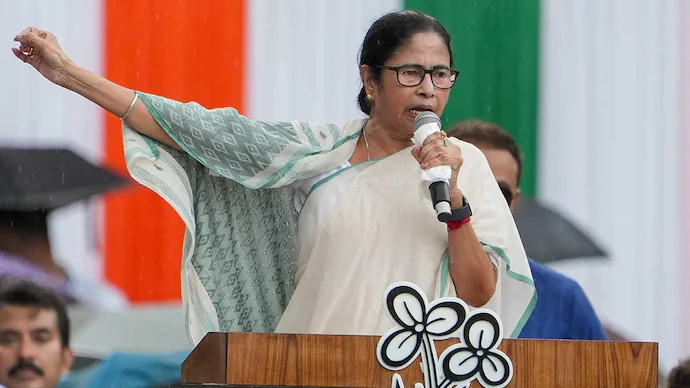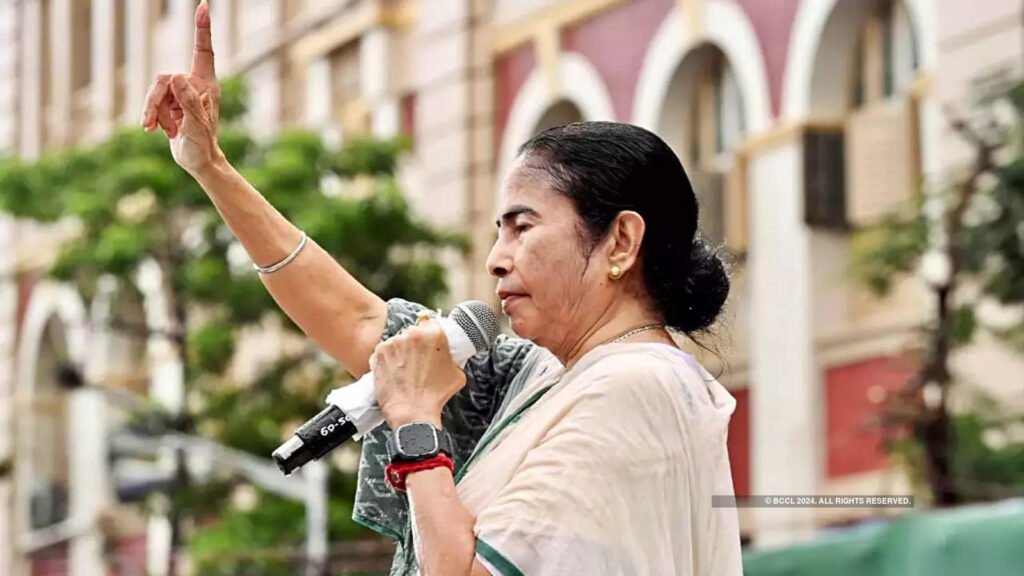West Bengal Chief Minister Mamata Banerjee has delivered a sharp rebuke to the Ministry of External Affairs (MEA) for criticizing her statements on providing shelter to Bangladeshi refugees.

Banerjee responded, “I am well-acquainted with the federal structure. Having served as an MP seven times and a Union minister twice, I understand the MEA’s policies better than most. Instead of trying to teach me a lesson, they should learn from the system itself.”
Mamata Banerjee’s Commitment to Refugees Sparks Controversy
Public Statement on Refugee Shelter
West Bengal Chief Minister Mamata Banerjee recently affirmed her commitment to sheltering Bangladeshi refugees amidst the violent clashes occurring in Bangladesh. Speaking at the ‘Martyrs Day’ rally of the Trinamool Congress in Kolkata, Banerjee emphasized her willingness to assist those affected by the unrest. “If helpless people come knocking on the doors of Bengal, we will surely provide them shelter,” she declared, highlighting her state’s readiness to offer refuge to individuals in need.
Banerjee’s comments were made in the context of a broader humanitarian perspective and in alignment with United Nations resolutions regarding refugee protection. Her statement aimed to address the plight of those fleeing violence and seek support for their safety and well-being.
Diplomatic Reactions and Criticism
The Bangladesh Foreign Ministry promptly expressed its discontent with Banerjee’s remarks. Through diplomatic channels, the ministry communicated concerns that her statements could potentially create confusion and mislead the public about the situation. The official response from Dhaka underscored the sensitivity of the issue and the need for careful handling of international relations.
The Ministry of External Affairs (MEA) of India confirmed that it had received a formal written objection from the Bangladeshi government regarding Banerjee’s comments. This objection highlights the delicate nature of cross-border issues and the importance of maintaining clarity in diplomatic communications.

MEA’s Response and Constitutional Authority
In response to the criticism, MEA spokesperson Randhir Jaiswal underscored that matters concerning foreign relations fall under the jurisdiction of the central government. Jaiswal emphasized that the central government holds exclusive authority over foreign affairs, as outlined in the Indian Constitution.
“Under the Seventh Schedule — List One Union List — item 10 of our Constitution, the conduct of foreign affairs and all matters which bring the Union into relation with any foreign country are the sole prerogative of the Union government,” Jaiswal stated. This assertion reaffirms the central government’s role in managing international relations and addressing issues that involve foreign countries.
Political and Diplomatic Implications
The clash between Banerjee’s state-level perspective and the central government’s stance on foreign relations underscores the complex dynamics of Indian federalism. Banerjee’s proactive approach to refugee issues reflects her administration’s humanitarian concerns but also places her in contention with federal authorities responsible for managing international diplomacy.
The situation highlights the ongoing tension between state and central authorities regarding the handling of foreign policy matters. As debates continue, the balance between humanitarian efforts and diplomatic protocols remains a critical aspect of India’s political landscape.
Banerjee’s statements and the ensuing diplomatic reactions highlight the complexities of managing international humanitarian concerns within the framework of national governance and federal authority. Her commitment to sheltering Bangladeshi refugees underscores a humanitarian approach, but it also conflicts with the central government’s exclusive role in foreign affairs. This tension illustrates the challenges that arise when state-level actions intersect with national and international diplomacy.
The diplomatic objections from Bangladesh and the MEA’s emphasis on federal prerogatives underscore the need for careful coordination between state and central authorities in matters of international significance. As this situation unfolds, it is crucial to observe how these interactions affect both domestic politics and international relations. The balance between addressing humanitarian needs and adhering to diplomatic protocols will be a key factor in shaping the outcomes of these discussions.
The resolution of this issue will likely impact how future humanitarian and diplomatic concerns are managed within India’s federal structure, influencing both the country’s internal politics and its global diplomatic engagements.
Stay tuned to Club4Celebs for more updates.


